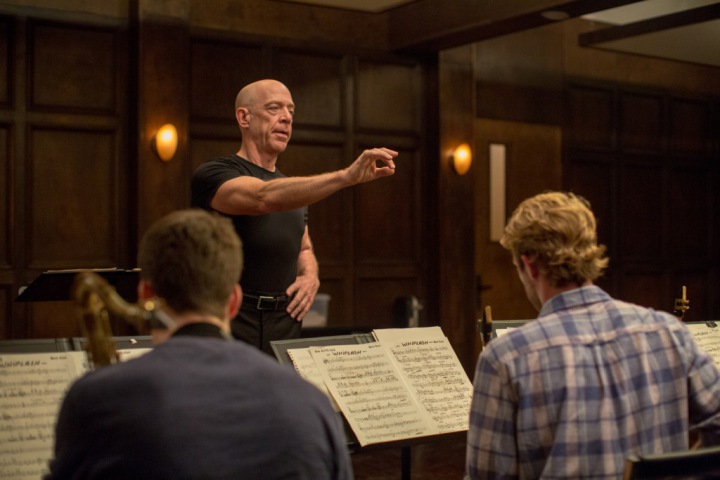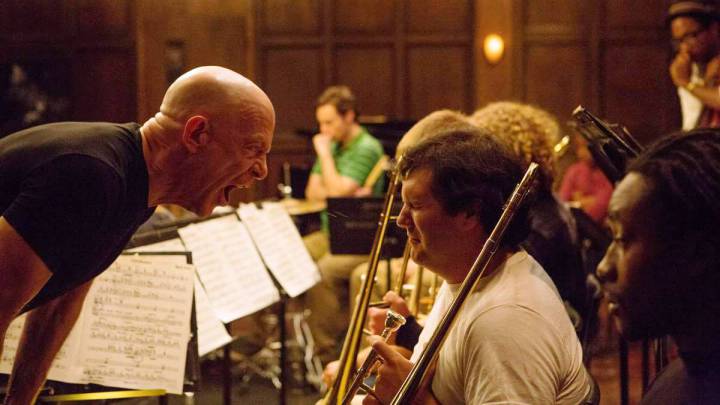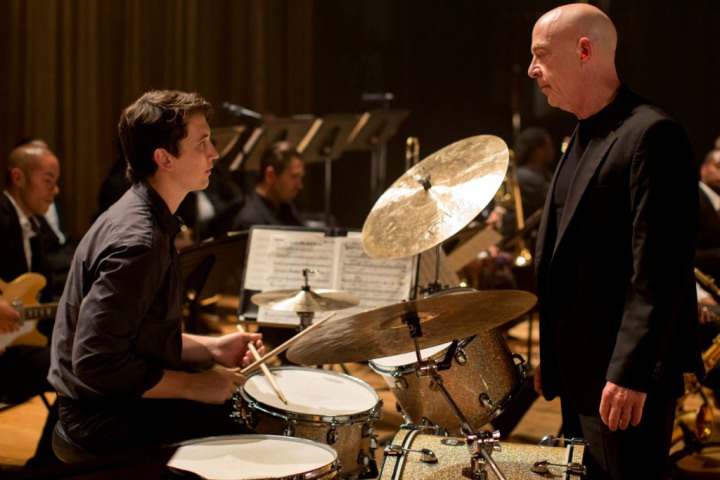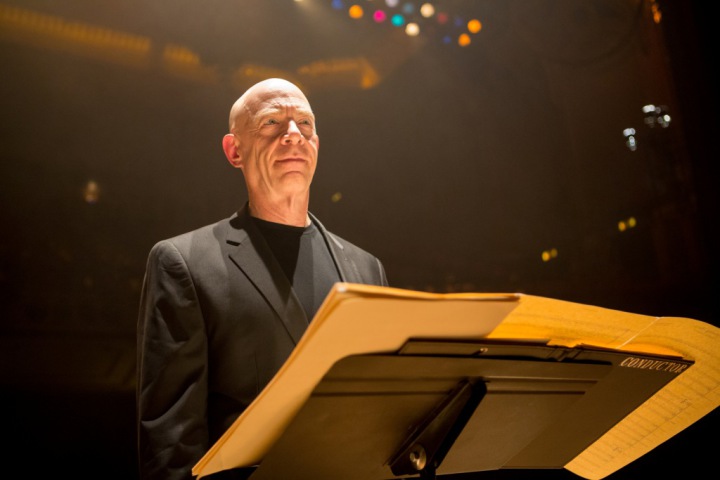I spent the bulk of Damien Chazelle’s Whiplash wondering who, exactly, this movie was made for. I’m not sure who — in the year 2014 — is exactly yearning for dramas about a young man’s pursuit of becoming, of all things, a great jazz drummer. On top of this, the film has few genuinely likable characters. Our hero, Andrew (Miles Teller, The Spectacular Now), while shy, awkward and generally lonely, is still often a smug brat. His nemesis — music professor Dr. Fletcher (J.K. Simmons) — is even worse, a wholly loathsome, violent, offensive, maniacal man who you wouldn’t mind seeing be hit by a bus. I sat through about 80 minutes of Whiplash feeling vaguely entertained but never truly feeling engaged. And then the climax hit, and all of that seemingly wasted time was forgiven in a truly energetic, full-throated bit of filmmaking that’s simply just satisfying. And while I may sound like I’m overstating the end of this movie, I promise, I am not — this is a rare time where a single scene is worth watching an entire movie.
Of course, before this happens, there’s a lot of movie to sit through. The plot is pretty straightforward, feeling like the jazz version of the uplifting sports movie in many respects. As I’ve said, Whiplash follows Andrew, a first year drumming student at a prestigious New York music conservatory who wants nothing more than to be one of the greats. Despite having no friends besides his father (Paul Reiser), he’s still willing to sacrifice any chance at companionship or love if it means chasing his dream. It even means putting up with Dr. Fletcher, an abusive music professor who “motivates” his students by any means necessary — whether through physical, mental or verbal abuse — grounded in the pretty specious idea that Charlie Parker once had a cymbal thrown at him and managed to turn into a legend because of it.
Most of the film is Fletcher being an intolerable, generally awful human being and Andrew trying to fight through the abuse before nearly destroying himself, leaving little room for any emotional resonance. Part of this might be due to Teller’s often self-satisfied screen presence, though this is probably his best performance to date (he’s much better outside of the occasional post-Vince Vaughn wiseass comedic roles he sometimes gets placed in). And Simmons nearly pulls off the impossible by making Fletcher complex and sympathetic just by being J.K. Simmons, but his character’s simply too vile for him to quite pull it off. There’s a lot of ambiguity between Andrew and Fletcher — Andrew fears this man but wants his respect and approval — but neither are amiable enough for this to matter.
Thankfully, there’s that ending, a piece of filmmaking that has more energy and unabashed verve than anything I’ve seen on screen all year. Without giving anything away, it’s big, loud and brash, ceaselessly dynamic and wholly gratifying. The only misstep is that it seems to condone Fletcher’s ways, but it’s a small quibble when the filmmaking itself is so arresting, especially in an age where directors struggle to show audiences anything new. It deserves all the hyperbole I can throw at it and molds the film into something greater than it has any business even flirting with — to the point I feel conflicted, like I’m underselling the rest of Whiplash — and that, itself, is astonishing. Rated R for strong language including some sexual references.








I spent the bulk of Damien Chazelle’s Whiplash wondering who, exactly, this movie was made for.
Turns out it’s me. And I’m not even a big jazz fan.
I like Teller and Simmons, stories of great ambition, and well-made films, so it’s for this not-all-that-big-a-jazz-fan, too.
I’d say it’s only nor-by-nor’west jazz. It’s studio band jazz. They may talk a lot about Charlie Parker, but the music we hear is more akin to big band jazz. “Caravan” is a ’30s Duke Ellington standard. (It’s also what Chick plays on the Piano Cocktail in Mood Indigo.)
They totally glossed over a hit and run accident, but it’s still one of the better films so far this year.
Whiplash> Birdman.
There is no acounting for taste. Better than Birdman? It’s not fit to wipe Birdman‘s beak.
Whiplash is a great film, but it is no Birdman. On so many levels, it’s not even close.
The best I can do is a “good film with a great ending.” Birdman is great from first to last.
It probably doesn’t help that I watched these back to back and am drawing correlation. I somewhat agree with the Scott Tobias take down , the film just felt empty to me, it tries to have it both ways by referencing itself, and I found it a little condescending and I’m not even a fan of the films its condemning. I rated both films 4 stars on Letterboxd, but Whiplash was just more a visceral experience for me with more relatable material to draw from.
Damien Chazelle is in love with close ups.
And?
Jazz I suppose.
No, I was wondering what this might indicate.
I somewhat agree with the Scott Tobias take down
Of course.
Tobias’ review makes it sound like he went in predisposed to hate Birdman based on his history with Iñárritu. I think Ken and I (and many others) went in dubious for similar reasons yet emerged wildly surprised that Iñárritu was capable of such a film.
Surprised hardly covers it. Stunned is nearer the mark.
“The only misstep is that it seems to condone Fletcher’s ways.”
No way. The climax only condones his ways if you want to see it that way. I don’t think the film cares how we interpret that. It cares more about taking us to that state of passionate perfection that both men were obsessed with in the movie. So good!